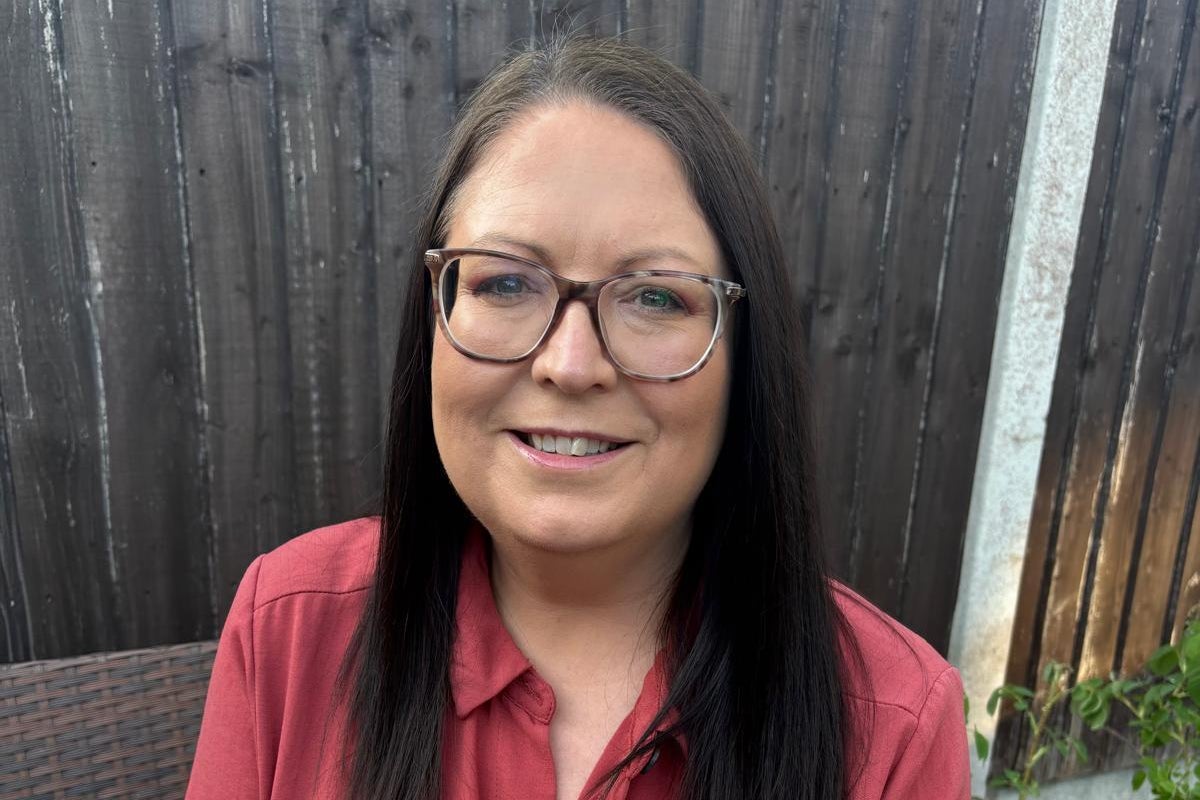Science
AI Skin Cancer Tool Saves Life of UK Office Manager

A new artificial intelligence (AI) skin cancer screening tool has proven life-saving for a UK office manager just hours after its implementation. Lynsey Robertson, 46, who works at Buckshaw Village Surgery in Preston, Lancashire, used the technology on her own skin and discovered a high-risk mole that turned out to be malignant melanoma.
After noticing a patch of skin that had changed color over time, Robertson decided to test the AI tool, which she had helped roll out at her workplace. The AI flagged the lesion for urgent review under the NHS’s two-week suspected cancer pathway. “I couldn’t believe it,” Robertson recalled. “I just kept thinking, what if I hadn’t said anything?”
Initially, Robertson dismissed her concerns, thinking the mole was harmless. “I’d had it for years. It wasn’t causing me any trouble. I thought I’d be wasting the GP’s time,” she explained. Following the AI’s assessment, she was quickly referred to Chorley Hospital, where she underwent minor surgery to remove the mole. Days later, she was diagnosed with malignant melanoma, an aggressive form of skin cancer. A second procedure successfully removed all cancerous cells.
Lynsey Robertson is now advocating for increased awareness of skin changes. “Had I not tested the technology at my office, who knows what could have happened,” she stated. Her experience highlights the potential of AI in early cancer detection.
AI Technology and Its Impact
Developed by Skin Analytics, the AI system analyzes images of skin lesions to identify potential signs of skin cancer. The software boasts an impressive 99.9 percent accuracy in ruling out melanoma. Healthcare professionals can use a smartphone with a high-quality magnifying lens to capture images of suspicious skin patches. These images are then assessed by the AI, and any flagged lesions are reviewed by a dermatologist.
This cutting-edge technology has been conditionally approved for use in the UK for the next three years and has already assessed over 170,000 NHS patients since its launch in 2020. The rapid adoption of AI in healthcare has sparked discussions about data security, bias, and the importance of human empathy in patient care.
The UK government, in its 10-year health plan for England, aims to make the NHS a leader in AI integration within clinical pathways. Health Secretary Wes Streeting recently remarked, “The AI revolution is here, and we are arming staff with the latest ground-breaking technology, so patients get faster and smarter care.”
Growing Concerns and Statistics
According to recent statistics from the NHS, more than 17,000 people are diagnosed with melanoma each year in the UK, leading to approximately 2,300 deaths annually. A report from Cancer Research released earlier this month indicated that only half of cancer patients in the UK are diagnosed within the NHS’s target of 28 days.
Polling conducted by Skin Analytics revealed that 73 percent of individuals believe the NHS has a duty to utilize technology with proven benefits for patients. Moreover, 71 percent of respondents think regulated AI could help reduce NHS wait times, further emphasizing the demand for innovative solutions in healthcare.
As Lynsey Robertson’s story illustrates, the integration of AI in medical diagnostics could not only streamline processes but also significantly impact patient outcomes. Her case serves as a reminder of the importance of paying attention to changes in one’s health, particularly when it comes to skin conditions.
-

 Entertainment3 months ago
Entertainment3 months agoAnn Ming Reflects on ITV’s ‘I Fought the Law’ Drama
-

 Entertainment4 months ago
Entertainment4 months agoKate Garraway Sells £2 Million Home Amid Financial Struggles
-

 Health3 months ago
Health3 months agoKatie Price Faces New Health Concerns After Cancer Symptoms Resurface
-

 Entertainment3 months ago
Entertainment3 months agoCoronation Street’s Carl Webster Faces Trouble with New Affairs
-

 Entertainment3 months ago
Entertainment3 months agoWhere is Tinder Swindler Simon Leviev? Latest Updates Revealed
-

 World2 weeks ago
World2 weeks agoBailey Announces Heartbreaking Split from Rebecca After Reunion
-

 Entertainment4 months ago
Entertainment4 months agoMarkiplier Addresses AI Controversy During Livestream Response
-

 Entertainment2 weeks ago
Entertainment2 weeks agoCoronation Street Fans React as Todd Faces Heartbreaking Choice
-

 Science1 month ago
Science1 month agoBrian Cox Addresses Claims of Alien Probe in 3I/ATLAS Discovery
-

 Health4 months ago
Health4 months agoCarol Vorderman Reflects on Health Scare and Family Support
-

 Entertainment4 months ago
Entertainment4 months agoKim Cattrall Posts Cryptic Message After HBO’s Sequel Cancellation
-

 Entertainment3 months ago
Entertainment3 months agoOlivia Attwood Opens Up About Fallout with Former Best Friend





















